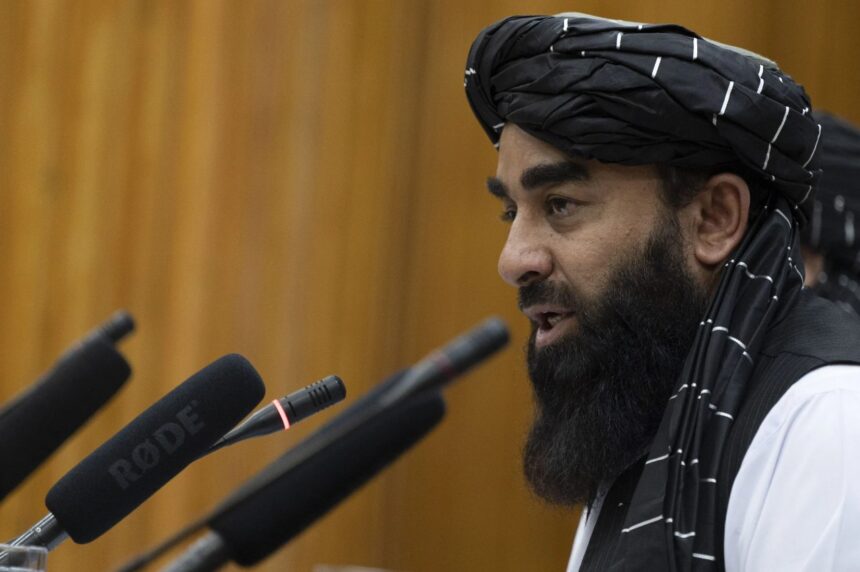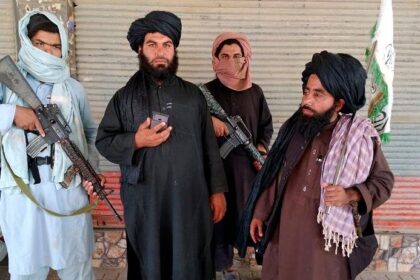RASC News Agency: In a defiant and dismissive response to the International Criminal Court’s unprecedented decision to issue arrest warrants for two of its most senior leaders, the Taliban have declared that they do not recognize the Court’s jurisdiction and vowed to continue their repressive regime unabated. The group’s reaction reflects not only their contempt for international law but also their unwavering commitment to enforcing a brutal interpretation of Islamic law that has devastated the lives of millions, particularly women and girls.
On Tuesday, July 8, the ICC formally announced the issuance of arrest warrants for Mullah Hibatullah Akhundzada, the Taliban’s reclusive supreme leader, and Abdul Hakim Haqqani, the regime’s chief justice. Both are accused of committing crimes against humanity, including gender persecution, the institutional suppression of women’s rights, and the systematic exclusion of women and girls from public life. The announcement was met with resounding applause from international human rights organizations and global civil society actors. Many hailed the decision as a long-overdue step toward justice for the people of Afghanistan, and in particular, for Afghanistani women who have endured what UN experts have repeatedly called a form of gender apartheid under Taliban rule.
However, the Taliban’s official response was swift and disdainful. In a voice message sent to media outlets, Zabihullah Mujahid, the group’s chief spokesperson, claimed that the Taliban do not recognize the authority of the ICC. He further asserted that “justice in Afghanistan is being administered in accordance with Sharia law,” and dismissed the arrest warrants as “baseless propaganda.” Such rhetoric underscores the Taliban’s longstanding strategy of deflecting international criticism by invoking religious legitimacy a tactic widely condemned by Islamic scholars worldwide, who have consistently argued that the Taliban’s actions are a gross distortion of Islamic principles. Under Taliban rule, justice has become synonymous with fear, exclusion, and repression.
“These arrest warrants are more than symbolic,” said Shahrzad Akbar, former head of Afghanistan’s Independent Human Rights Commission and current director of the rights organization Rawadari. “They represent a critical moment of reckoning. Afghanistani women have long called for international accountability now, for the first time, we see the world taking a meaningful step.” Akbar emphasized that while enforcement may take time, the ICC’s decision is historic in its formal recognition of the Taliban’s treatment of women as a prosecutable international crime. She noted that the ruling was based on evidence of gender-based persecution, systemic denial of education and employment, and the use of religion as a tool for subjugation, all of which constitute crimes under the Rome Statute.
The arrest warrants stem from a formal request made by Karim Khan, then-Chief Prosecutor of the ICC, in January 2025, following exhaustive documentation of the Taliban’s policies which have effectively erased women from public, economic, and political spheres in Afghanistan. While global rights defenders welcomed the Court’s decision, the Taliban continued to posture themselves as victims of Western interference. Mujahid insisted that the group remains steadfast in implementing what he called “Islamic justice” and claimed that no external pressure would alter their course a thinly veiled justification for the regime’s ongoing human rights violations.
Meanwhile, prominent former officials and women’s rights activists like Akbar warned that any efforts to normalize relations with the Taliban in the wake of this ruling would amount to complicity. “This ruling is a powerful rebuke to those countries and institutions still seeking backdoor diplomacy with the Taliban,” Akbar said. “To legitimize this regime is to sanction the persecution of an entire gender. The world must not betray Afghanistani women.” In a final blow to the Taliban’s narrative, many international legal experts underscored that the ICC’s jurisdiction is not subject to recognition by individual regimes. The Court was established to prosecute crimes that shock the conscience of humanity, regardless of whether the accused acknowledge its authority.
As the ICC now moves toward the next phase in pursuing justice, observers say the Taliban’s dismissive stance only reinforces the urgency of continued international pressure, diplomatic isolation, and legal accountability. “We are witnessing the global community finally drawing a red line,” said a senior legal advisor at Human Rights Watch. “Impunity for tyranny is no longer guaranteed especially not for those who silence, starve, and subjugate an entire people under the banner of religion.”






